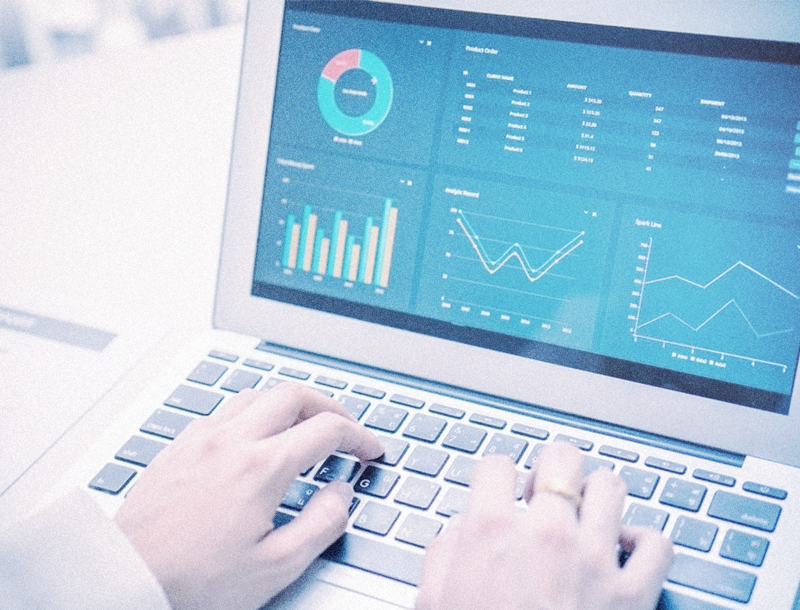One of the major disruptions of data science and artificial intelligence has been in the area of personal investment and trading. Consider how far this has come.
Years ago, individual investors used brokers who provided advice and counsel on what to buy and sell and who managed their clients’ portfolios. These brokers would manually research market conditions and specific companies.
Then came the Internet and the opportunity for individual investors to perform trades at discounted prices through online brokerage houses – basically brick and mortar brokerage firms who made the transition to the Internet in order to survive and compete with the new trading startups.
Today, there is a new generation of trading products – apps with robo-advisors that collect and churn data from everywhere and that can perform several functions for personal investors:
1. They can automatically execute trades based upon the investor’s pre-determined conditions.
2. They can perform research based upon queries initiated by traders.
3. Using AI to understand a trader’s behaviors, they can make recommendations
4. They can provide real-time market conditions and alerts, based upon investor directive or AI learning about investor’s preferences
Based upon the demand that individual traders now have for data and for streamlined trading opportunities, there are now a number of fintech startups, as well as established online trading enterprises, that are developing trading apps.
The growth of trading apps has become a major disruptor of trading, and it is expected that, by 2022, there will be close to 122,000 such apps on the market.
Anyone considering developing such an app will need to understand the major features that must be in place for investors to have a level of trust and comfort to use it.
Here are those major features:
-
Protection of Accounts
This is a top priority if users are to have a sense of security. Opening an account with a trading ap means surrendering a large amount of personal information – name, address, birthday, social security number, bank accounts, etc. This is absolutely everything that cybercriminals need, and then some.
Users must be comfortable with the security measures that the app has in place. In addition, they also need to know what protections they have, should there ever be a breach of that security. There are protections, in fact, in the form of the Financial Industry Regulatory Authority and the Securities Investors Protection Corporation. Customer assets, through these agencies, will protect customer assets up to $500,000.
-
User Experience – Friendly and Streamlined
In everything from ordering a pizza to purchasing products from e-commerce retailers, to booking airline and hotel reservations, to conducting voice searches for nearby restaurants, today’s consumer wants ease and efficiency. He does not want to struggle to understand how to go about the process of conducting “business” online.
The same is true when that consumer uses a trading app. And trading can be somewhat complex. A good app will include a visual demonstration that “walks” a new user through a mock trade, as well as other features in the app. And, there should be a free trial, so that the investor can execute a trade or two, set up alerts, etc. and experience the ease that has been built into the app.
-
Built-In Alerts and Notifications
Individual traders do not have the time or understanding to conduct research. But apps that have built-in robo-advisors do. When traders request data, they should be able to get it in real-time, and they should be able to direct the conditions under which trades will automatically be conducted, without their intervention.
Traders should also be able to set up alerts and notifications in advance. And, if the app has the type of AI it should, the robo-advisor can set up additional alerts and notifications based upon what it learns about a trader’s past and typical behaviors.
-
Real-Time Market Tracking
Whether traders are actually invested in a particular stock or not, they may still want to follow it and have data about it delivered in real-time whenever they access their app. Attractive apps will allow for this real-time tracking on any number of stocks, as directed by the user. This will allow that user to make immediate decisions about buys and sells, or to have directives for those trades set up in advance.
The number of trading apps is growing quickly. And yet, many of them still do not have the advanced features that consumers want – especially alerts and notifications and options to set up automatic trades in real-time. Including the element of collection and analysis of data is also an element that users will find especially attractive.
If you are thinking about a trading product, then you must think about the features discussed above. And when you look for a development team to get that product created and to market quickly, as well as provide all of the follow-up support you may need, then you will be looking for a team from Brainberry.
We have years of experience in fintech and that includes the substantial development of trading apps. Let’s talk.

